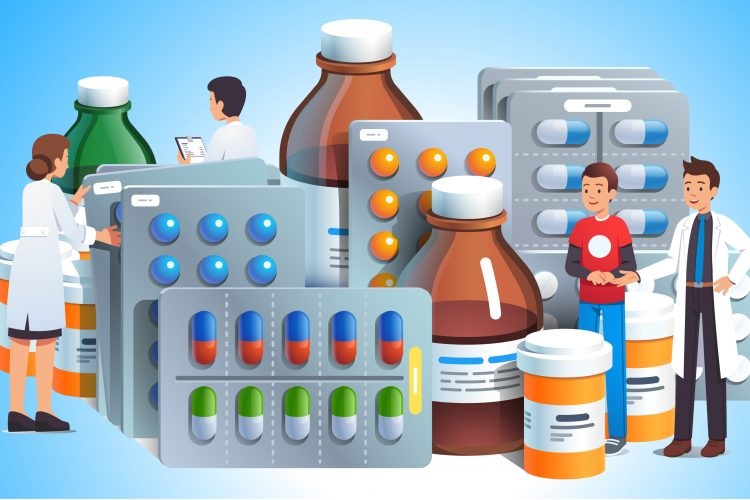
Africa imports 800% of medicines, says AFDB.
Africa is the world’s second largest and second-most populous continent, with a population of over 1.3 billion people. It is also home to some of the most diverse and rich cultures, languages, and natural resources. However, Africa also faces many challenges, such as poverty, conflict, disease, and climate change.
Africa is heavily dependent on imported medicines, according to a recent report by the African Development Bank (AFDB). The report, titled “Pharmaceutical Manufacturing in Africa: Status, Challenges and Prospects”, reveals that the continent imports about 80% of its pharmaceutical needs, with some countries importing as much as 95%. This situation exposes Africa to various risks, such as supply disruptions, price fluctuations, substandard products and counterfeit medicines.
Register for Tekedia Mini-MBA edition 19 (Feb 9 – May 2, 2026): big discounts for early bird.
Tekedia AI in Business Masterclass opens registrations.
Join Tekedia Capital Syndicate and co-invest in great global startups.
Register for Tekedia AI Lab: From Technical Design to Deployment (next edition begins Jan 24 2026).
The report argues that developing a local pharmaceutical industry in Africa is not only vital for ensuring access to quality and affordable medicines, but also for creating jobs, enhancing skills, boosting innovation and fostering economic growth. It identifies several challenges that hinder the growth of the sector, such as weak regulatory frameworks, inadequate infrastructure, limited financing, high production costs and low competitiveness.
It also proposes some policy recommendations to address these challenges, such as strengthening regional integration, enhancing public-private partnerships, promoting research and development, and improving human capital.
The report calls for a collective action from all stakeholders, including governments, development partners, private sector, civil society and academia, to support the development of a sustainable and competitive pharmaceutical industry in Africa. It also highlights some success stories and best practices from countries that have made significant progress in this area, such as Ethiopia, Ghana, Kenya, Morocco, Nigeria and South Africa.
This means that Africa is highly dependent on external sources for its pharmaceutical needs, which exposes it to various risks, such as:
High prices: Importing medicines from abroad increases the cost of drugs for African consumers, who often have to pay out-of-pocket for their health care. According to a study by the United Nations Economic Commission for Africa (UNECA), the average price of imported medicines in Africa is 2.5 times higher than the international reference price.
Low quality: Importing medicines from abroad also raises concerns about the quality and safety of the drugs, as they may not meet the standards and regulations of the African countries. According to a report by the WHO, about 42% of substandard and falsified medicines reported globally between 2013 and 2017 were from Africa.
Supply chain disruptions: Importing medicines from abroad also makes Africa vulnerable to supply chain disruptions, such as delays, shortages, or stock-outs, due to factors such as political instability, trade barriers, natural disasters, or pandemics. For example, during the COVID-19 crisis, many African countries faced difficulties in procuring essential medicines and medical supplies from abroad, as global demand surged, and export restrictions were imposed by some countries.
The implication of this situation is that many Africans are unable to access the medicines they need for their health conditions, which leads to increased morbidity and mortality rates, reduced productivity and economic growth, and increased inequality and social unrest.
To address this challenge, Africa needs to develop its own pharmaceutical industry, which can produce locally relevant, affordable, and quality medicines for its population. This would not only improve the health outcomes and well-being of millions of Africans, but also create jobs, stimulate innovation, enhance regional integration, and foster self-reliance and sovereignty.
Some of the steps that can be taken to achieve this goal include:
Investing in research and development (R&D) to discover and develop new drugs that are tailored to the specific needs and preferences of African patients, such as drugs for neglected tropical diseases or drugs that are suitable for tropical climates.
Strengthening the regulatory capacity and harmonization of African countries to ensure that the medicines produced in Africa meet the highest standards of quality, safety, and efficacy.
Promoting public-private partnerships and collaboration among African countries and stakeholders to leverage their complementary strengths and resources, such as human capital, infrastructure, technology, markets, and financing.
Enhancing the local production capacity and competitiveness of African pharmaceutical manufacturers by providing them with incentives, subsidies, tax breaks, preferential procurement policies, technical assistance, and access to raw materials.
Improving the distribution and access of locally produced medicines by expanding the coverage and affordability of health insurance schemes, strengthening the supply chain management systems, reducing tariffs and non-tariff barriers, and raising awareness among consumers and health workers.
Africa has the potential to become a major player in the global pharmaceutical market, which is expected to reach $1.5 trillion by 2023. By developing its own pharmaceutical industry, Africa can not only improve its health security and resilience but also contribute to its economic development and social transformation.
The report is part of the AFDB’s efforts to promote industrialization and economic transformation in Africa, as outlined in its High 5 priorities. The AFDB believes that a vibrant pharmaceutical sector can contribute to improving the health and well-being of the African population, as well as to achieving the Sustainable Development Goals and the African Union’s Agenda 2063.



